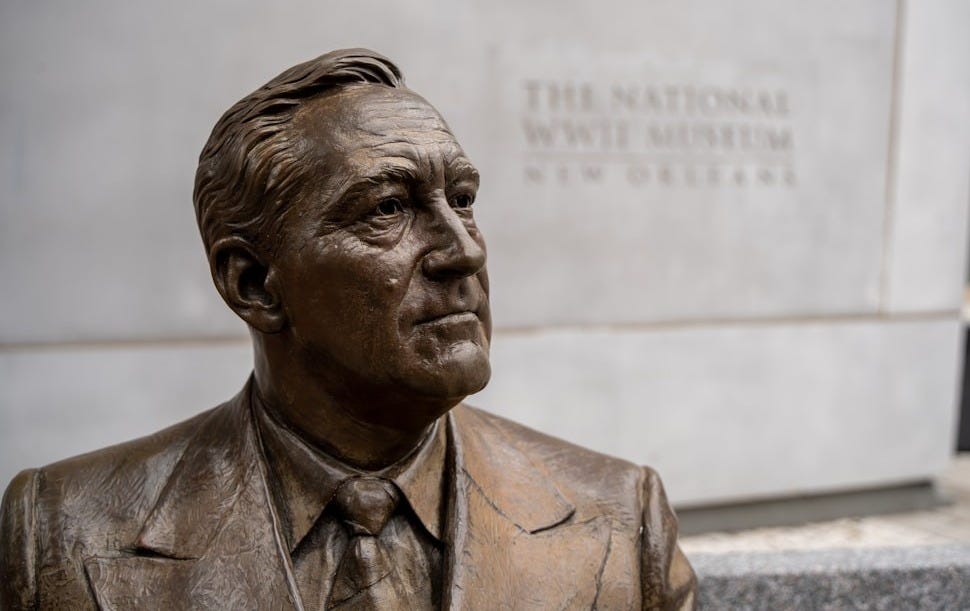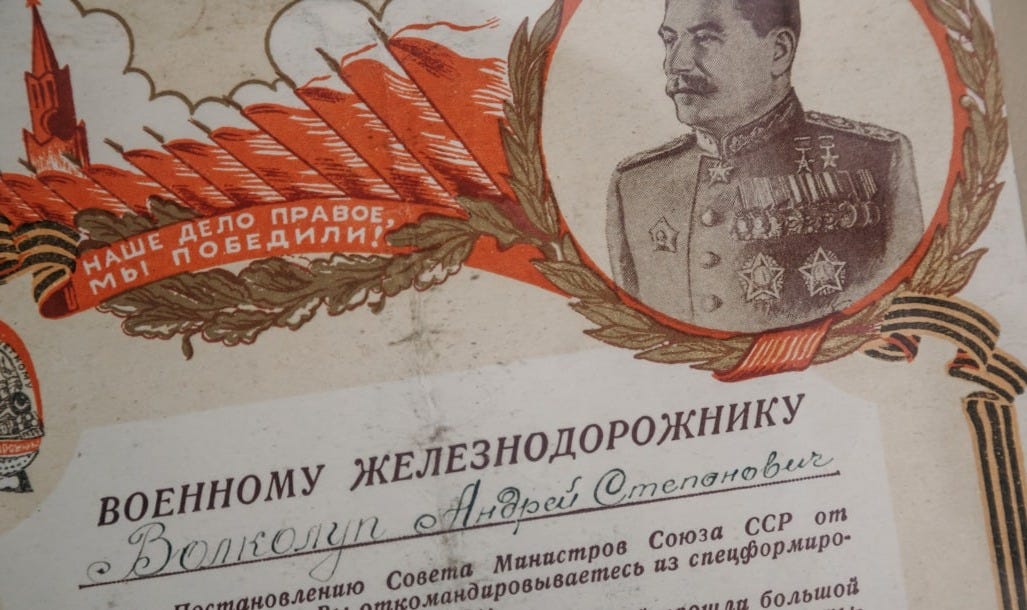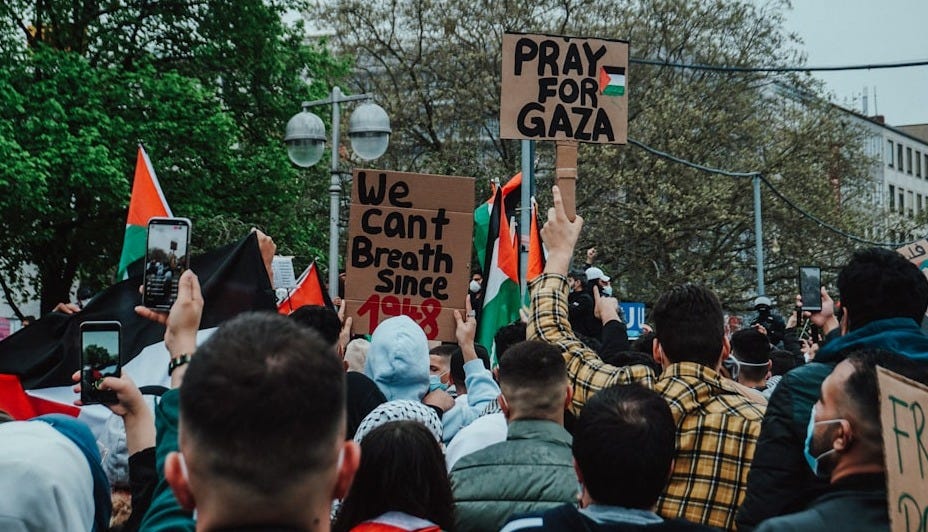Sergey Radchenko on war and peace, security and humiliation
Trump, Putin, Zelenskyy, Stalin, Hitler, Yalta and Munich
As the legendary Green Bay Packers coach Vince Lombardi once shouted from the sidelines, “What the hell is going on out here?!?”
Now that we’ve had a week to process the Oval Office meltdown and its aftermath – Trump and Vance belittling Ukrainian president Volodymyr Zelenskyy for his diplomatic faux pas; Zelenskyy’s move to mend fences; the administration cutting off military aid to and intelligence sharing with Kyiv – we might begin to make sense of where peace negotiations and the future of the transatlantic partnership are headed.
This requires looking past President Trump’s crude, bombastic approach (and his endlessly aired personal grievances) to settle on some difficult realities.
In my view, some of these are:
The U.S. president does not care about Ukraine (a point the historian Michael Kimmage made in his excellent book Collisions). Rather, Trump views U.S. support for this victimized country as an obstacle to his more important priorities, such as rebuilding the U.S.-Russia relationship.
Trump wants Ukraine to begin negotiations from the position that it started the war and Russia is the aggrieved party. Remember, the U.S. president admires the autocrat in the Kremlin.
Putin’s armies are not winning. As David French argues in a New York Times op-ed, while Ukraine has some insurmountable problems, “Russian advances have come at a terrible price.” What would victory look like? Whenever I am asked who won the First World War, I answer no one. The same may apply here.
Still, Ukraine may lose, de facto, at least 20 percent of its territory on top of the incalculable human and material losses suffered since Feb. 2022.
Thus, the argument goes, Zelenskyy must strive for the best deal possible before circumstances worsen. These bewildering developments show that Ukraine cannot rely on indefinite U.S. support. And European states need time to build up their militaries. Whether Europeans would send their sons and daughters to defend Ukraine is another problem.
The seeds of future conflict
In a more charitable interpretation of Trump’s policy, the U.S. is unlikely to abandon NATO, but the administration is correct (however unsettling its public rhetoric) to expect Europe to be able to defend itself with the U.S. playing an important, but no longer dominant, role in European security.
As the foreign affairs columnist Daniel DePetris posted on X, “Forget Trump for a moment and consider this: what we’re actually seeing right now is a return to normality in international relations. Self-help is ultimately the best defense guarantee. In an anarchic world without a central authority, states in general can’t be assured that alliances will be permanent or adversaries will be benign, which means they need to do more for themselves to account for those factors. The Europeans, frankly, haven’t done that, so they’re now playing catch-up.”
Catch-up, indeed. In 2013 the historian Andrew Bacevich, no reckless ideologue, argued that the U.S. should leave NATO to the Europeans.
“The devolution of NATO into a European alliance should occur in phases, but the place to begin is with this basic proposition: In 2023, the United States will withdraw from the alliance. That will give Europe an entire decade to figure out how to defend itself from the nearly non-existent threats that it faces and to get used to the fact that the Cold War has, in fact, ended. Somehow or other I think they'll be able to manage,” Bacevich wrote.

The year after Bacevich penned his op-ed, Russia illegally annexed Crimea and invaded the Donbas. The U.S. and Europe publicly condemned Moscow and imposed sanctions, but before long moved on to other priorities. Russia was, in President Obama’s unforgettable words, “a regional power” threatening its neighbors “out of weakness.”
The Kremlin launched full-scale war in 2022 and Europe was still overly reliant on the United States. The “nearly non-existent threats” of 2013 were now replaced by psychological dominos: after Ukraine, will Putin target the Baltics? Poland? Moldova? Finland?
“Making peace is harder than waging war.” – Clemenceau
Rightly or wrongly, Trump’s crude “America First” foreign policy no longer views Europe as a vital center of strategic importance, to say nothing of Kyiv’s cellar-dwelling position in the president’s worldview – except for Ukraine’s natural resources. On the other hand, throwing Kyiv to the wolves is probably not in U.S. interests, either.
So what kind of peace, if any, might emerge? In an essay for The Financial Times, the historian Margaret MacMillan cautions that achieving a durable settlement will be very difficult. Either the Trump administration does not understand the difficulty or simply intends to bully Ukraine into accepting a dictated peace that may plant the seeds for future conflict. Russia, feeling emboldened by U.S. recognition of its illegal gains in Ukraine, would attempt to swallow the rest of the country or turn its attention to actual U.S. treaty allies on NATO’s eastern edges.
Should Trump and Putin get what they desire, we will have entered a new era of transatlantic relations, if we haven’t already. Can history help us navigate it?
Ransacking the past
Is Donald Trump even more inept than Neville Chamberlain? In The New York Review, Aryeh Neier says Chamberlain’s appeasement of Hitler at Munich compares favorably to Trump’s abandonment of Ukraine.
Yalta is making appearances, too. Is the dealmaker extraordinaire selling out Zelensky the same way FDR “sold out” the Poles in February 1945?
Oh, let’s not forget the end of the Cold War. In the Democrats’ response to the president’s address to Congress, Michigan Senator Elissa Slotkin intoned, “As a Cold War kid, I’m thankful it was Reagan and not Trump in office in the 1980s. Trump would have lost us the Cold War.”
Never mind that some conservatives lambasted Reagan because they mistakenly believed he was being duped by Gorbachev. It is also ironic to listen to Democrats pine for a man whose politics were deeply unpopular on the left — and who did not “win” the Cold War single-handedly anyway!

In Friday’s episode of History As It Happens, the historian Sergey Radchenko delved into these faulty comparisons. Our conversation was not meant to defend Trump’s treatment of Ukraine; we defended a historical record that is frequently used and abused in public discourse.
Radchenko is an expert on the Cold War and Russian and Chinese foreign policies at the Johns Hopkins School of Advanced International Studies. His 2024 book, To Run the World, was a monumental achievement of archival research and original analysis, as I wrote in my review.
“People do tend to overuse simple comparisons with Munich or the Molotov-Ribbentrop Pact, and they just don’t work. I think it’s intellectually lazy, and I say that as a historian. I should want to sell the historian’s craft and say, yeah, look at all the historical parallels! It’s important to read history and understand the sources of foreign policy behavior. For example, the source of resentment in Russian foreign policy. I’ve spent years trying to understand this… but that doesn’t mean that Putin is just following in the tracks of his predecessors who will always do what, say, Stalin did,” Radchenko says.
I wrote about the Munich stuff last year after the historian Timothy Snyder kept riding his favorite hobby horse. Putin is not Adolf Hitler. He’s Putin. After three years of war from Sept. 1939, Nazi Germany had swallowed most of Europe, bombed London, invaded the Soviet Union, and had killed, maimed, or enslaved millions of people.
After three years of war from Feb. 2022, Russian armies are still mired in the Donbas. Russian and Ukrainian casualties are staggering, but Putin’s ambitions (and capabilities) are not Hitlerian. They’re horrendous enough without the Munich comparison.
Moreover, rather than abandoning Ukraine as Britain and France abandoned the Czechs in 1938, Europe supplied Kyiv with money, weapons, and diplomatic support, even if insufficient and late.
When it comes to Yalta comparisons, my main point of disagreement is with the claim that FDR “sold out” the Poles and sanctioned Stalin’s sphere of influence. There is no denying that Roosevelt was a shell of himself by Feb. 1945 and badly misjudged Stalin. But what cards did Roosevelt or Churchill have to play? The Red Army had occupied Warsaw weeks before the Big Three convened in Crimea.
“Stalin understood that lesser gains with greater legitimacy were better than larger gains with lesser legitimacy,” says Radchenko regarding Stalin’s bargaining position at Yalta.
“What does legitimacy mean? It means American recognition of those gains. Stalin was willing to make concessions. Which concessions? Clearly not in Poland, but even Communization of Poland came later as a result of Stalin realizing that unless he Communized the country fully, he could not fully control it. For a time he was trying to play both sides and let Poland have a mixed government [with a few non-Communists],” Radchenko says.
Thus, FDR was not even in a position to “sell out” Poland. Radchenko continues:
“What could FDR have possibly done? The Soviets were in control military and had already imposed on Poland what they wanted. The British and the Americans got away with a promise that the Soviets would hold free and fair elections, which they knew would be flawed. Stalin was never going to allow them.
“Churchill had something called ‘Operation Unthinkable’ [a preemptive attack against the Soviet Union after the war]. It was, exactly, unthinkable! Nobody wanted to go to war against the USSR after fighting the Germans and Japanese for five years. Another war? Over what? Poland? It was very sad for Poland, but a sellout? I refuse to accept that.”
Radchenko draws a convincing parallel between Stalin and Putin: they sought “great power” legitimacy through American recognition of their gains. Stalin didn’t need Western recognition to dominate Poland; the Red Army had established facts on the ground. Today, Putin is seeking and may well receive Donald Trump’s approval to dominate Ukraine. Like Stalin, Putin doesn’t need White House recognition to keep his armies in 20 percent of Ukrainian territory. He seeks the “legitimacy” such recognition bestows.

Reversing humiliation
Stalin viewed Poland as a security concern; Germany had invaded Russia in 1914 and the USSR in 1941 through Poland. Does Putin see Ukraine – or which power bloc “controls” Ukraine – as a legitimate security concern? Ukraine posed no military threat. And NATO was not planning to invade Russia through Ukraine.
“Russian leaders have always seen NATO enlargement as, if not a security threat, then at least a humiliation for Russia. Those are Yeltsin’s words, by the way. In 1995 when Bill Clinton went to Moscow and told Yeltsin there would be NATO enlargement no matter what, Yeltsin said this is nothing but humiliation for Russia. So humiliation is a big part of this,” Radchenko says.
“But security is there, too. There are different ways to look at security. You might say Russia is protected by nuclear weapons. And there are people in Russia who will say this is true, but there are others including in the military who will say, no, NATO still matters and we’re worried about NATO being next to our borders. So security threats and perceptions of security threats are real things. When people say Putin is just making this up, that’s not correct.
“On the other hand, it is more complicated. Putin has advanced visions of reunification of Russia and Ukraine in his various writings. If you consult his writing, you will see that his vision is imperialistic and there’s nothing about security. It’s about Ukraine being part of Russia.”
Also discussed in the podcast episode with Sergey Radchenko: the Oval Office blowup; the terms of the Istanbul peace deal that wasn’t; the “reverse Nixon” nonsense; Putin’s curious remarks at a recent news conference about Russian humiliation; and more.
Also worth reading is former U.S. ambassador to the Soviet Union Jack Matlock on a possible road to peace. Read his essay for the Quincy Institute here.
And “Russia’s Costly Conquest in Ukraine” by Peter Liberman and Andrew Kosenko in Foreign Affairs, the official publication of the Council on Foreign Relations.
Sharon’s disengagement and the road to war in Gaza
Historian Ahron Bregman has a powerful personal story that informs his scholarship. In the summer of 1982, as an IDF officer, he participated in the siege of Beirut in the second Israeli invasion of Lebanon.
After the outbreak of the First Intifada in 1987, Bregman refused to serve because he opposed the Israeli occupation of Palestinian territory. He moved permanently to the United Kingdom, where he teaches history at King’s College London.
In Tuesday’s episode of History As It Happens, Bregman recounted a watershed moment in the Israeli-Palestinian conflict. In 2005, Prime Minister Ariel Sharon unilaterally withdrew Israeli forces from Gaza, forcibly relocating about 8,000 Jewish settlers. Disengagement was designed to undermine the “roadmap to peace” proposed by the U.S., U.N., European Union, and Russia, the so-called Quartet, Bregman says.
The following year, Hamas won a majority of seats in the Palestinian elections and then in 2007 prevailed in a brief civil war against the Palestinian Authority’s Fatah faction. Hamas now controlled the Gaza Strip. Over the next 15 years, one of Hamas’ most important “benefactors” would be Benjamin Netanyahu’s government.
As Haaretz reports, “An investigation by Israel's Shin Bet security service has found that the policy of maintaining ‘quiet’ in Gaza, as well as the transfer of Qatari funds to Hamas' military wing for its buildup, were among the main factors that enabled Hamas to prepare for the October 7 attack.”
Rather than attempting to resolve the fundamental problem of Palestinian statelessness, Netanyahu bolstered Hamas or declined to assassinate its leaders so he could maintain a rift in the Palestinian leadership that provided a self-serving excuse not to negotiate with the Palestinian Authority.
So, rather than peace blossoming after Sharon’s disengagement from Gaza, Israelis and Palestinians received repeated rounds of violence, a pattern that became known as “mowing the grass.” After Oct. 7, 2023, Israel decided that hacking away some weeds would no longer suffice. Gaza is now a desolation.
What’s next?
In next Tuesday’s episode, historian Roger Griffin will explain who is AfD, Alternative for Deutschland, the far-right party that finished second in the German elections.
Next Friday, historian Kevin Ruane will delve into the history of a never-realized idea: a European army (at least not since 1945). As the United States threatens to recede from Europe, is a supranational army the answer? Who would control it?





Excellent episode!